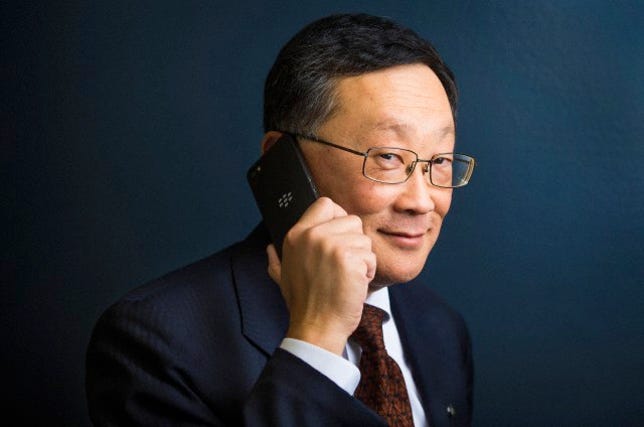We’re finally getting a clearer picture of whether people are giving BlackBerry another chance. And things don’t look good.
BlackBerry said Friday that it sold 600,000 phones in its fiscal fourth quarter, well below Wall Street’s expectations of 850,000 and also below the 700,000 units it sold in the preceding quarter.
Until now, things had been a little murky. BlackBerry’s first Android-powered phone, the Priv, went on sale in November, but it worked with only a few carriers, such as AT&T in the US. T-Mobile began selling the phone in January, and Verizon added it earlier this month. Sprint still isn’t selling it.
Beyond token comments by CEO John Chen, like things are “quite positive” and “so far, so good,” there hadn’t been many indicators of how many people were buying the Priv.
BlackBerry devotees (those who are left) and Wall Street alike have been keen to see whether the Priv is resonating with consumers. That’s because a big part of BlackBerry’s future in phones hinges on the success of the Priv, which marked a dramatic move away from running the company’s own software in favor of Google’s widely used Android.
“This quarter or the next could determine if BlackBerry remains a hardware vendor,” said Avi Greengart, who covers consumer electronics for Current Analysis.

 Enlarge Image
Enlarge ImageBlackBerry CEO John Chen has hoped that the Android-powered Priv phone will help keep the brand alive.
Mark Blinch/Reuters/Corbis
Chen defended the results, saying the company cut its operating loss by half as its phones make more money.
“The path to profitability looks reasonable,” Chen said on the company’s investor conference call Friday. BlackBerry needs to sell 3 million phones this year to break even, he said.
Still, he acknowledged that distribution remains a challenge, with Verizon delaying the release of the Priv. BlackBerry is working on expanding to 14 carriers in six countries.
The Priv’s success is critical to BlackBerry because the company has put most of its eggs in the Android basket. Chen said in a January interview that he expects to ship only one, or possibly two, new phones, and that they too will run on Google’s mobile software.
On the comeback trail, BlackBerry is also transforming itself into more of a software and services provider. It expects to grow its software business by 30 percent for the fiscal year.
Moving into the world of Android means BlackBerry now competes against heavy hitters like Samsung’s $700 Galaxy S7 and LG’s G5 (anywhere from $630 to $690), super phones with top-of-the-line specifications and unique features. The $700 BlackBerry offers essentially the same experience, with a little bit of extra security software on top.
Chen acknowledged that the market for high-end phones is saturated and said he’s looking at a midrange-priced device. He declined to provide additional details.
BlackBerry’s phone sales continued to be the primary driver of revenue. In total, the company posted a fiscal fourth-quarter loss of $238 million, or 45 cents a share, on revenue of $464 million.
Excluding one-time items, the Canadian company posted a loss of $18 million, or 3 cents a share. That’s narrower than Wall Street’s average estimate of a loss of 10 cents a share. Revenue fell short of the projected $563 million target, given the meager phone sales.
BlackBerry shares fell 7.3 percent to $7.50 in premarket trading.
Updated at 5:30 am PT: To include information on phone sales.


Now playing:
Watch this:
The BlackBerry Priv bets on Android and a novel, slide-out…
1:36



